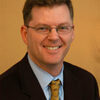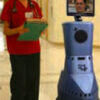Read All About It
In the aftermath of the recent shuttering of Colorado’s oldest newspaper, The Rocky Mountain News, a couple of colleagues and I were discussing how unlikely it seemed just a few months ago that this could happen. It wasn’t long until we made the theoretical leap to what it would take for our hospitalist group to go out of business. Of course, this seems highly unlikely, but then again, the closing of a 150-year-old metropolitan newspaper seemed a preposterous proposition.
In the course of this discussion, we conjured myriad internal or external factors that could adversely affect our program. Although this was a tangential, lunchtime discussion, it did reverberate against the tuning fork of a faltering U.S. economy, especially regarding the financial sector and the automotive industry.
With that as a frame, I thought I’d take a dip into Paranoia Pond and look at potential threats to the HM model. Let me start by saying that I believe—deeply—in the hospitalist movement, the strides we’ve made, and the bright path that lies before us. I am not stating that any of these potential perils will put hospitalists out of business. However, the list below includes several risks that, if not properly mitigated, could alter our future course.
Here are 10 potential threats to the HM business model that you should keep an eye on:
1. Failure to Embrace QI
Those who fundamentally improve outcomes will write the future of medicine. Hospitalists are perfectly positioned—and expected—to do this. I believe most hospital CEOs think this is part of the contract: funding for quality. A failure to live up to our end of the bargain puts us at great risk. If your group isn’t able to demonstrate measurable improvements in processes and clinical outcomes, then you are at risk of losing hospital funding. As the economy recedes further and hospital reimbursement is more closely tied to quality, this will quickly move beyond a potential threat to a reality.
2. Lack of New Data to Support the HM Model
A corollary of No. 1 is our ability to show how we work. This burden, by and large, falls to my academic colleagues. After a rash of early studies showed the benefits of the hospitalist model, more recent data has been less convincing. This doesn’t mean we aren’t improving outcomes; rather, it means we aren’t always measuring and proving it. HM must get past the easy-to-measure endpoints, such as length-of-stay reduction and cost savings, to more meaningful endpoints, such as readmission rates, mortality, and clinical improvements. Ultimately, HM depends on robust, published data that clearly illustrate our benefit to hospitals and patients. Anything short of that intensifies the pressure to achieve No. 1.
3. Decreased Admissions
Our mother ship is under fire. Each wound our hospitals suffer is a wound to us. Erosion of hospital margins likely will translate to decreased levels of support. Nearly 40% of hospitals are experiencing a decrease in admissions. Coupled with economy-induced increases in the number of uninsured patients, this looms as a major threat to our future stability.
4. Elective Procedures
Thirty-one percent of hospitals have witnessed a decrease in lucrative, elective procedures. It began with the rise of procedural centers (e.g., surgery, gastroenterology, radiology) and is being exacerbated by the wheezing U.S. economy. Each 1% increase in unemployment results in roughly 2.5 million Americans losing their employer-provided health benefits. That means fewer elective procedures, which directly threatens the profitability of HM groups who depend on co-management revenue.



